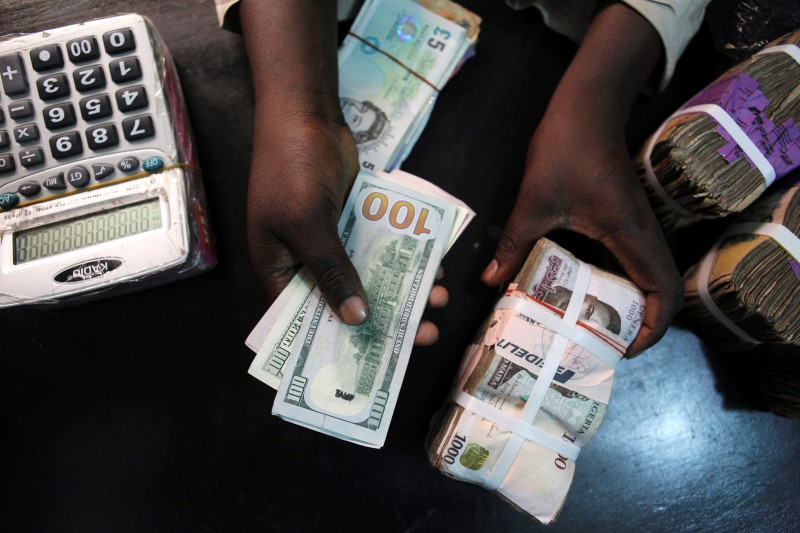Trade agreements, Intel, Trump/Powell - what’s moving markets
(Adds further details, analyst comment)
By Chijioke Ohuocha
Aug 17 (Reuters) - Annual inflation in Nigeria rose for the
11th straight month in July, the statistics office said on
Monday, as the novel coronavirus pandemic took its toll on
imports and logistics.
Inflation climbed to 12.82%, its highest level in more than
two years, from 12.56% in June, the National Bureau of
Statistics said.
Yields on Treasury bills and bonds have now fallen below
inflation, a major stumbling block for the central bank's push
to attract foreign inflows to support the naira NGN= and boost
the economy.
The central bank has weakened the currency twice this year,
to absorb the impact of a sharp fall in crude prices, which have
caused a steep decline in growth. The move has also added to
inflation with dollar shortages disrupting imports.
An analyst at Lagos-based consultancy Financial Derivatives
said a hike in petroleum prices and disruptions linked to the
phased easing of the coronavirus lockdown are partly to be
blamed for the rise in inflation.
Nigeria lifted an interstate travel restriction and allowed
domestic flights to resume in July as airlines hiked fares to
reflect social distancing rules and amid low demand. The statistics office said the prices of passenger transport
by air and road rose the most on the non-food index, in addition
to charges for medical services and pharmaceutical products.
A separate index for food, which accounts for the bulk of
the inflation basket, showed a price increase of 15.48% from
15.18% in June. Food inflation has been in double digits for
more than three years.
Africa's top oil exporter faces economic hardship from the
coronavirus outbreak. The government expects the economy to
contract by as much as 8.9% this year.
